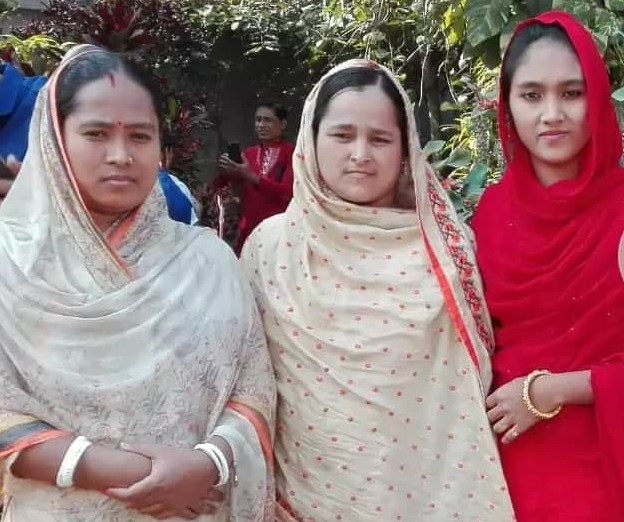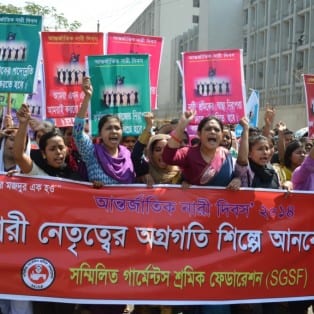After hundreds of laid-off garment workers took to the streets of Ashulia, Bangladesh, and rallied at the Dhaka Export Processing Zone in recent weeks, factory management and the Bangladesh Export Processing Zones Authority agreed to compensate them with one month’s...
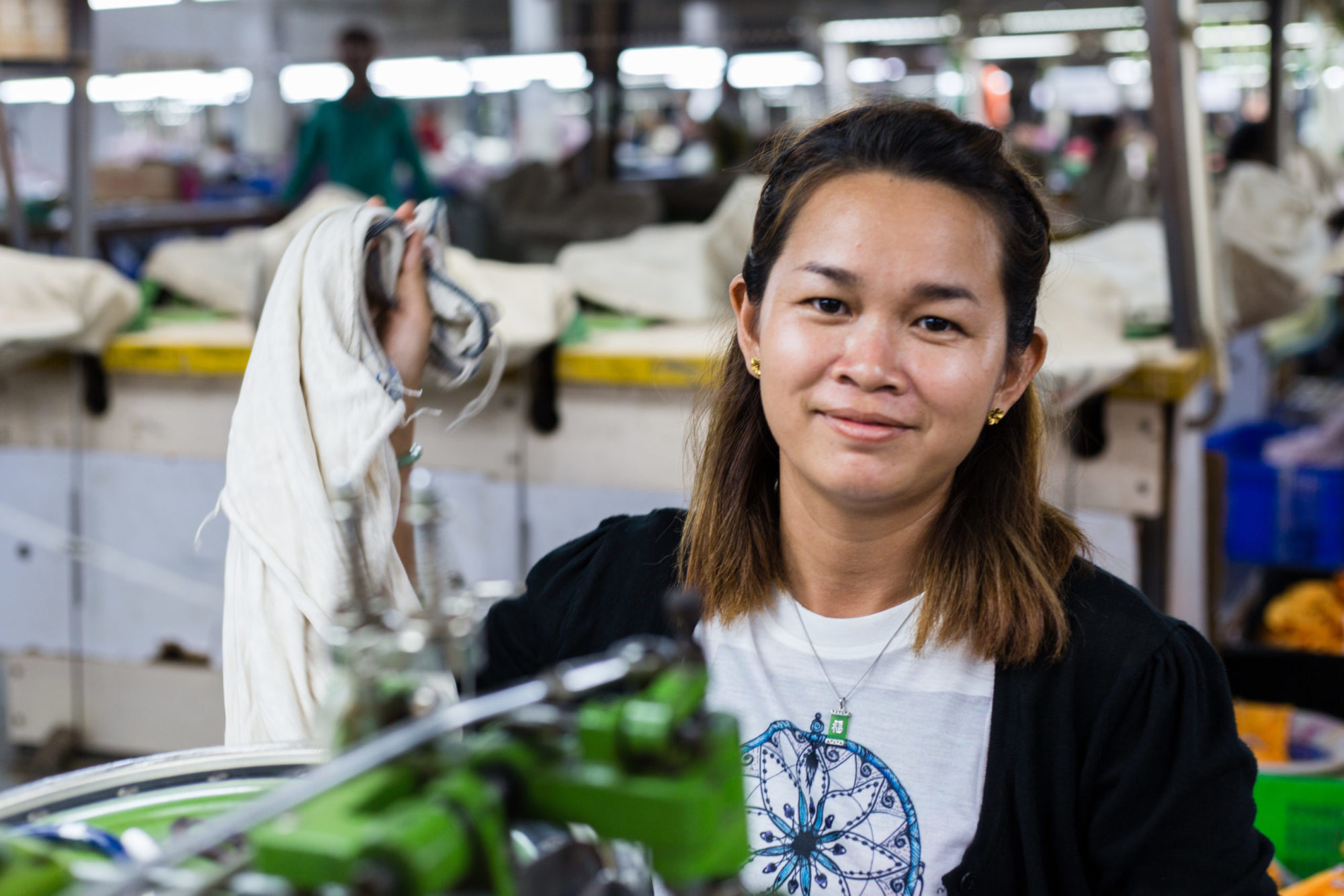
Heng Rithy, a garment worker in Cambodia, says her factory has good working conditions and she can support her family because workers have a union. Credit: Solidarity Center/Shanleystudio
[Southeast Asia; On the Level podcast] COVID-19 and the Garment Industry
The garment industry tends to invest where the rule of law is weakest, where there are sizable degrees of poverty and a degree of impunity, said the Solidarity Center's David Welsh on the podcast, "On the Level with Jeff Hutton," With the advent of the pandemic,...
COVID-19: Bangladesh Garment Workers Stand Up for Rights
The COVID-19 crisis is especially devastating for the 50 million workers who make clothes, shoes and textiles in factories around the world. With declining sales, corporate retailers are canceling orders and factories are laying off workers, most without pay. Those...
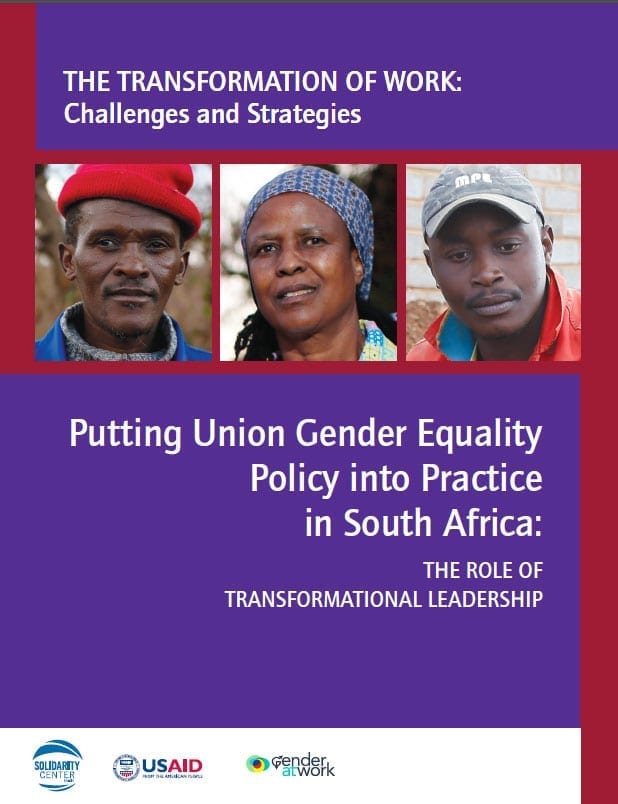
Putting Union Gender Equality Policy into Practice in South Africa
Unions are key drivers advancing gender equality. Yet in many countries around the world, there is a disconnect between labor union policy and practice in transforming gender inequalities within trade unions. Through the lens of the South African union movement, this...
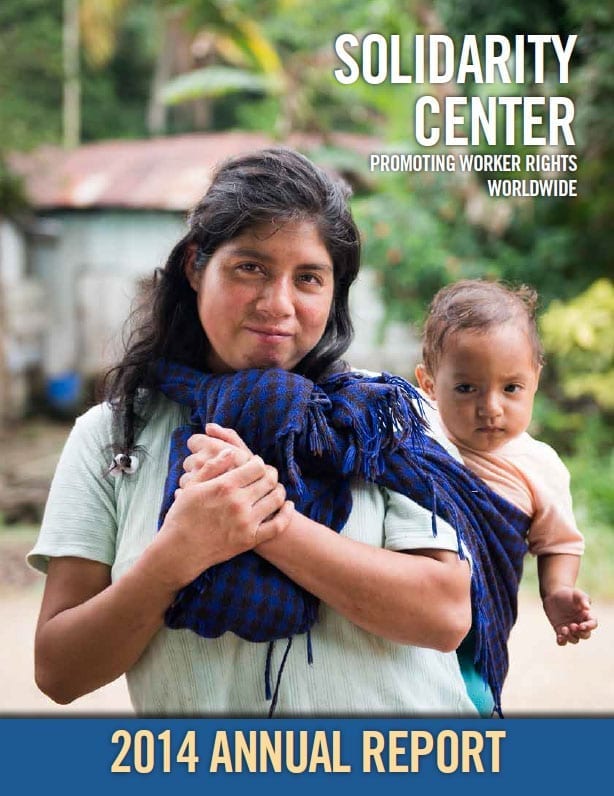
Annual Report 2014
Download here.
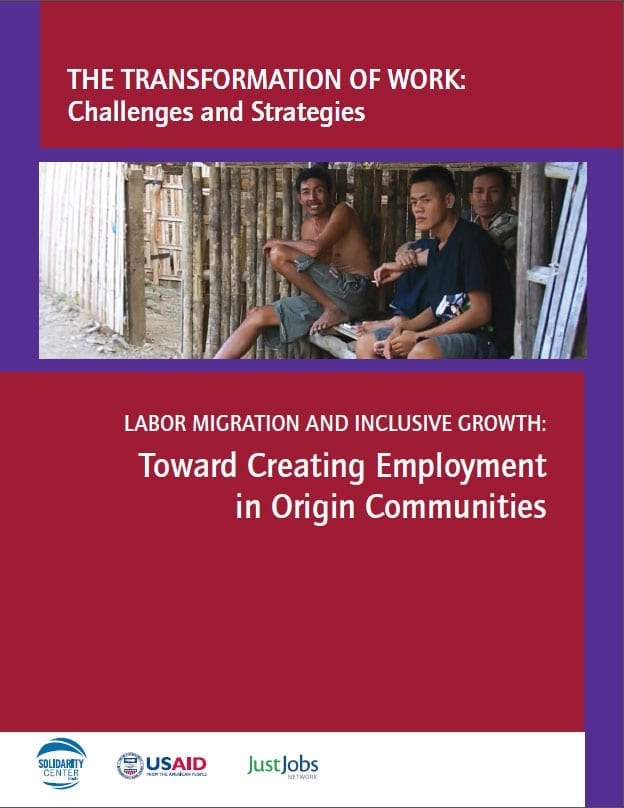
Labor Migration and Inclusive Growth: Toward Creating Employment in Origin Communities (2015)
This paper investigates the intersection of labor migration and the inclusive growth agenda, and seeks to recommend policies so governments of origin countries can, in part, expand labor migration’s positive impacts by making migrant workers agents in promoting and...
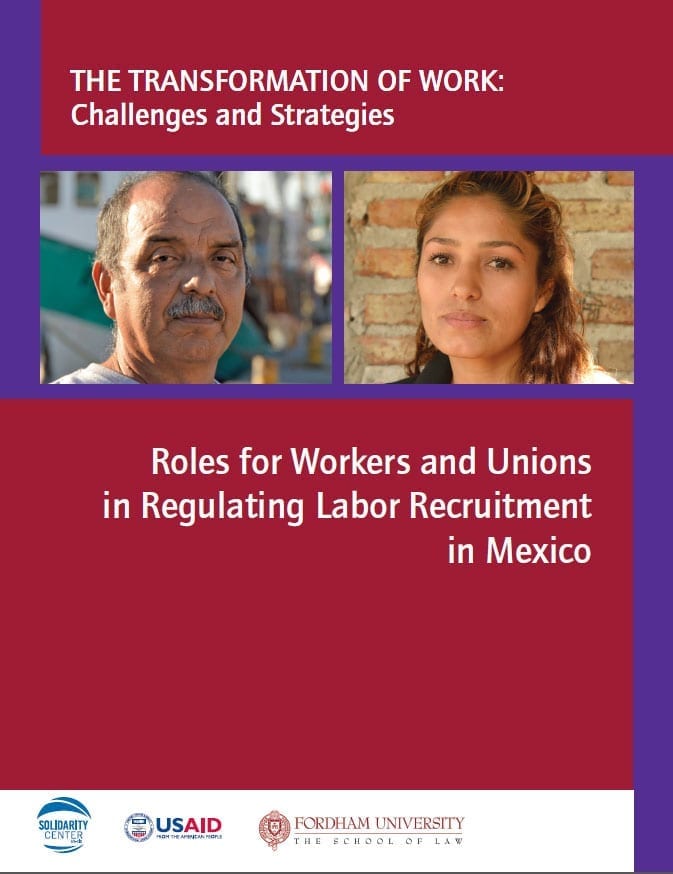
Roles for Workers and Unions in Regulating Labor Recruitment in Mexico (2015)
Fordham University law professor Jennifer Gordon examines the roles of guest workers as organizers, monitors and policy-setters in supply chain initiatives and other efforts to address labor recruitment violations. Download here.
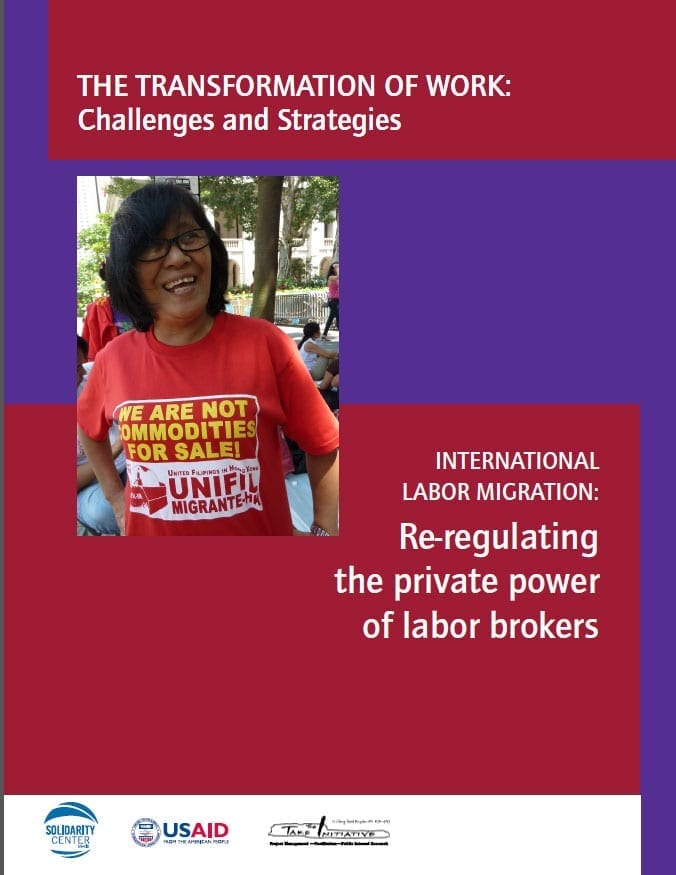
International Labor Migration: Re-regulating the Private Power of Labor Brokers (2015)
In this review of initiatives to regulate labor brokers, the authors find that state and civil society efforts to address migrant worker exploitation point to potential new policies, most effectively led by state-backed regulatory frameworks. Download here.
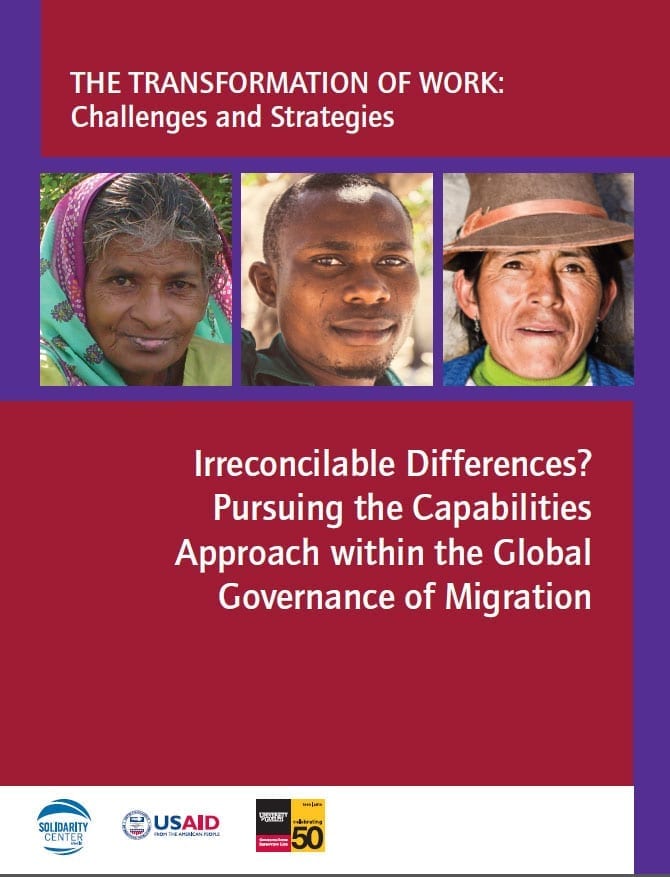
Irreconciliable Differences? Pursuing the Capabilities Approach within the Global Governance of Migration (2014)
This report on global labor migration challenges the current “triple win” paradigm in global migration policy through a worker rights lens, and argues that when applying the now-accepted "capabilities" approach, the international development community must focus on...

